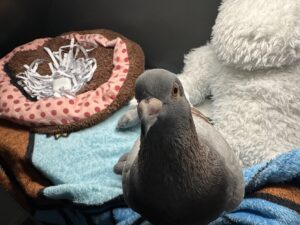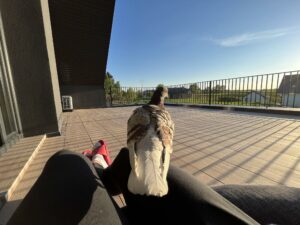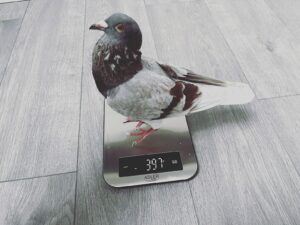How often do pet pigeons poop? How about other pigeons? Let’s check.
As a pet pigeon owner, I have learned firsthand the importance of cleaning up pigeon poop and maintaining a clean environment for my pet.
Pigeon poop, also known as droppings or feces, is the waste produced by pigeons. It is important to clean up pigeon poop regularly to prevent the buildup of bacteria and parasites, which can be harmful to both humans and birds.
In this article, I will share my tips, experience, and advice on how often pigeons poop and how to manage their poop effectively.
JUMP TO:
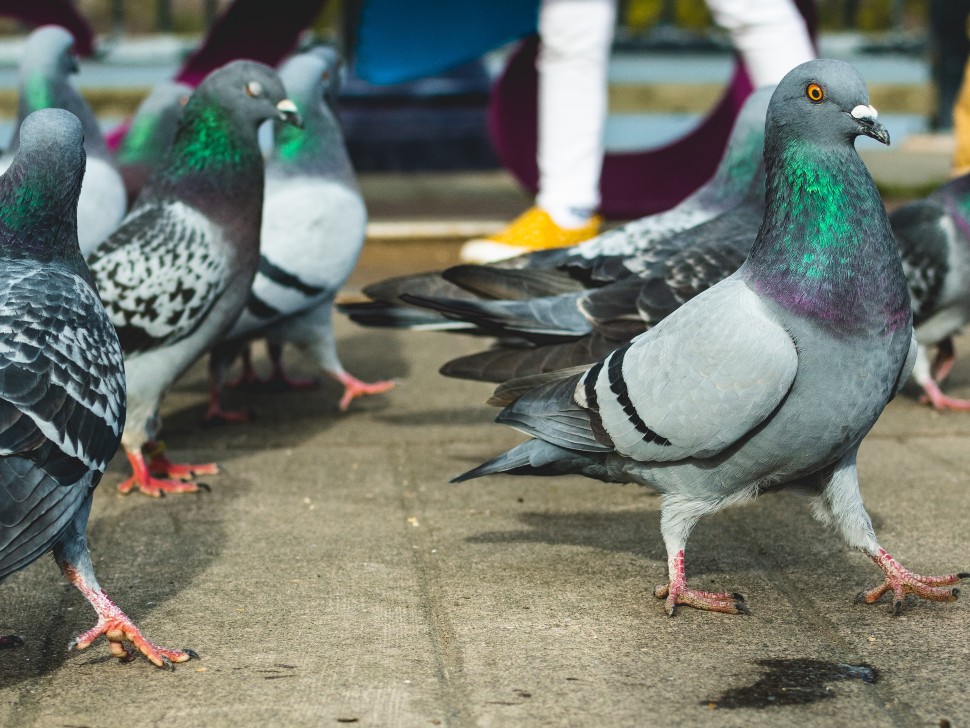
How often do pigeons poop? 10-second summary
Pigeons typically poop every few hours, with the average frequency being around 30 times per day. However, the actual frequency of pigeon poop can vary depending on a number of factors, including the pigeon’s diet, age, and health status.
Overall, it is important to monitor the frequency of your pigeon’s poop and be aware of any changes that may occur, as this can be an indicator of their health and well-being.
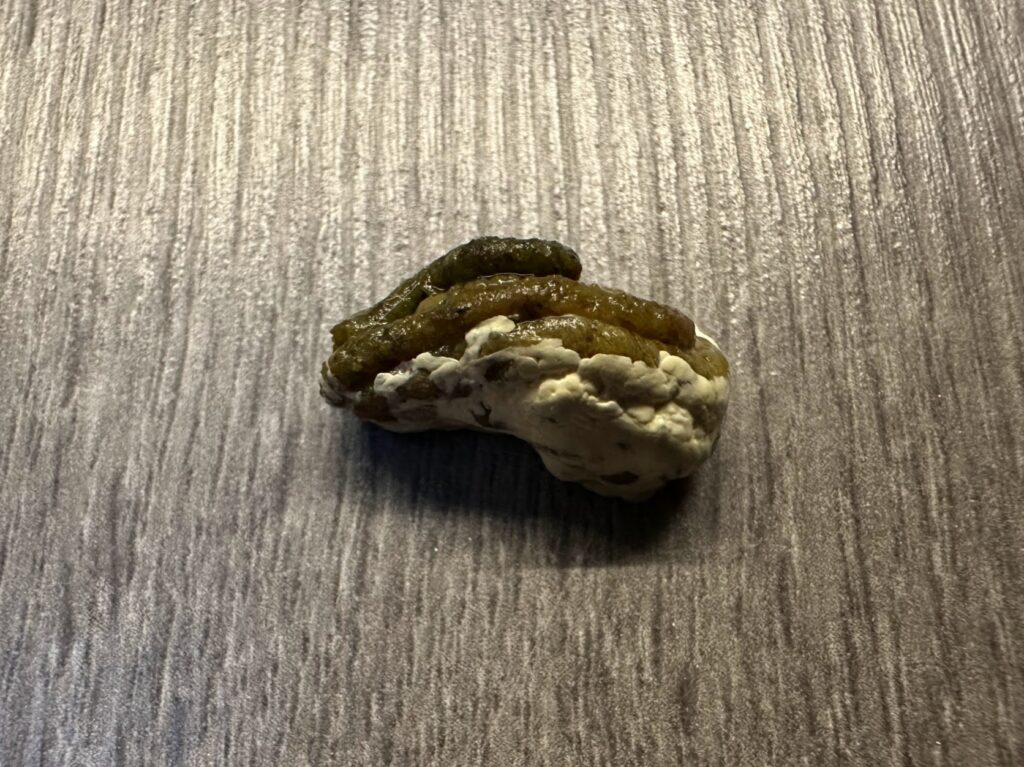
How often do pigeons poop? Factors & Details
There are a number of factors that can influence the frequency of pigeon poop. These include:
- Diet: The type and quantity of food that a pigeon consumes can affect the frequency of their poop. For example, a pigeon that is fed a high-fiber diet may poop more frequently, while a pigeon that is fed a low-fiber diet may poop less often.
- Age: Pigeon poop frequency can also be influenced by the age of the pigeon. Young pigeons or chicks may poop more frequently than older pigeons, as they are still growing and developing.
- Health status: Pigeons that are sick or experiencing gastrointestinal issues may poop more frequently than healthy pigeons.
Overall, the average frequency of pigeon poop ranges from 4-7 times per day, with a mean of 5.5 times per day, according to a study published in the Journal of Animal Science (https://www.ncbi.nlm.nih.gov/pmc/articles/PMC3147333/).
Another study published in the journal Poultry Science (https://academic.oup.com/ps/article/77/4/534/2707212) found that pigeons typically produce around 50-60 droppings per day.
- It is important to monitor the frequency of your pigeon’s poop and be aware of any changes that may occur, as this can be an indicator of their health and well-being.
- If you notice a significant change in the frequency of your pigeon’s poop or if they are experiencing other gastrointestinal issues, it is recommended to consult with a veterinarian. They will be able to assess your pigeon’s health and recommend any necessary treatment.
In addition to the factors mentioned above, other factors that can influence pigeon poop frequency include the pigeon’s activity level and stress level.
Pigeons that are more active may produce more poop, while pigeons that are under stress may produce less poop.
Overall, understanding the factors that can influence pigeon poop frequency can help pigeon owners to better manage their pet’s poop and maintain a clean and hygienic environment for both the pigeon and the owner.
It is important to be aware of the average frequency of pigeon poop and monitor for any changes that may occur, as this can help to ensure the health and well-being of your pet pigeon.
Check this: How To Tell If A Pigeon Is Male Or Female?
How often my pet pigeon poops
As the proud owner of a spunky little pigeon named Gerard, I have learned that my feathered friend has quite the appetite for life – and that apparently includes pooping.
While studies show that the average pigeon poops 4-7 times per day, Gerard seems to have his own schedule.
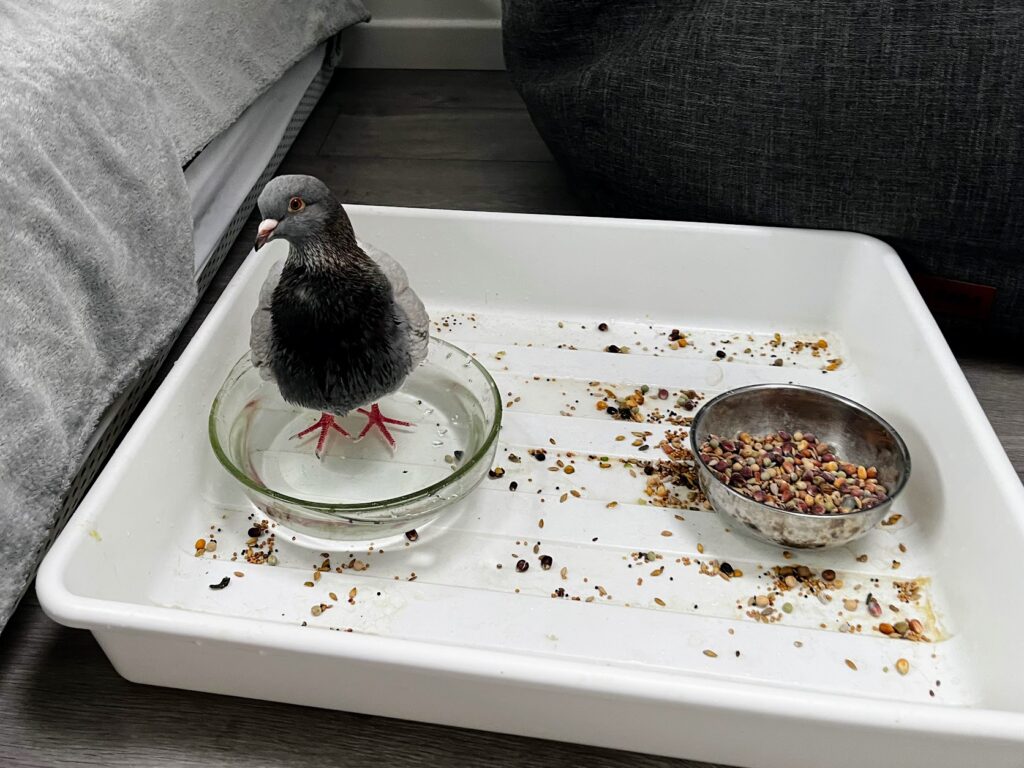
When I play with him or engage him in interactive activities, it’s not uncommon for him to leave a trail of small poops in his wake – sometimes as many as 4-5 within a single hour.
And on particularly exciting days, he’s even been known to surpass the 5 poop mark.
Make sure to check this: How Long Do Pigeons Live?
How to manage pigeon poop
Here are the tips and tools for effectively cleaning up and managing pigeon poop, including the use of pigeon pants or bird diapers.
- Tips for cleaning up pigeon poop:
- Use gloves to reduce the risk of exposure to bacteria and parasites
- Use a scoop or shovel to pick up the poop and place it in a trash bag for disposal
- Disinfect the area using a pigeon-safe disinfectant and follow the manufacturer’s instructions
- Rinse the area thoroughly to remove any residue
- Tools for managing pigeon poop:
- Scoop or shovel: Can be used to pick up and remove pigeon poop
- Trash bags: Can be used to contain and dispose of pigeon poop
- Disinfectant: Can be used to kill bacteria and parasites in the environment
- Pigeon pants or bird diapers:
- Garments that are designed to be worn by pigeons to catch and contain their droppings
- Can be convenient for owners who want to keep their pigeons as indoor pets but are concerned about the mess that pigeon droppings can create
- Can make it easier to clean up pigeon poop and reduce the spread of bacteria and parasites
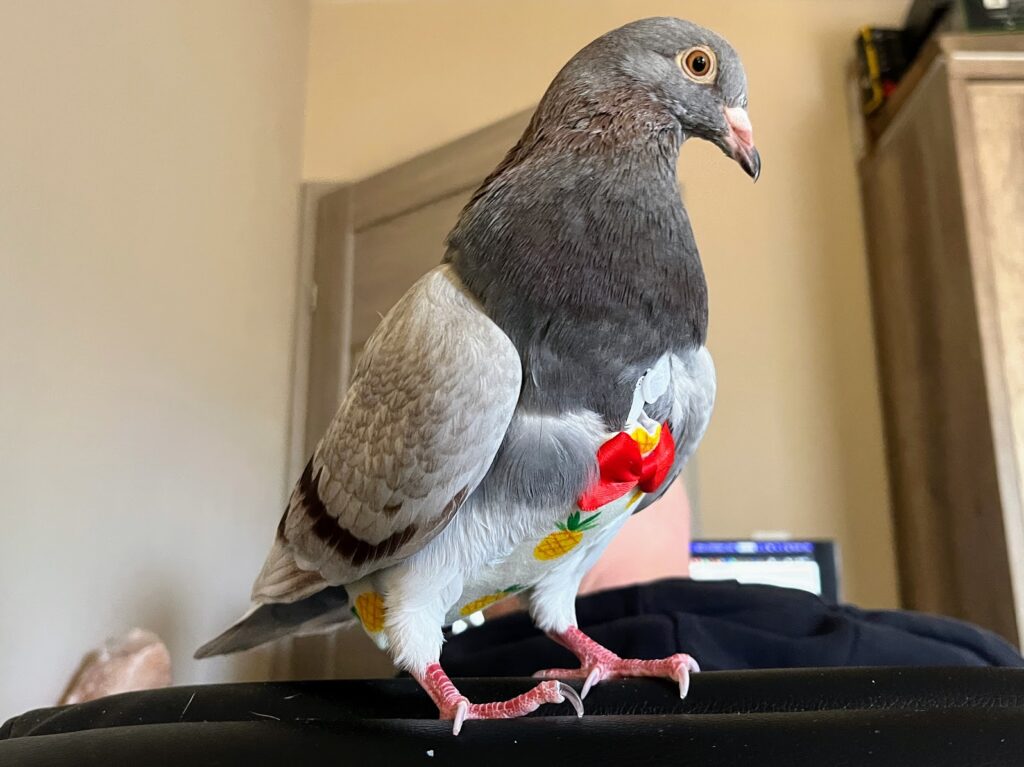
By following these tips and using the appropriate tools and garments, pigeon owners can effectively manage pigeon poop and maintain a clean and hygienic environment for their pet pigeon.
Check these other poop articles:
Final pigeon poop thoughts
To summarize, properly managing and cleaning up pigeon poop is an essential part of caring for a pet pigeon and maintaining a clean and hygienic environment.
Whether you have a poop machine like Gerard or a more “normal” pigeon, it’s important to follow the guidelines outlined in this article to safely and effectively manage your pigeon’s poop and keep their environment clean and hygienic.
This will not only benefit your pigeon’s overall health and well-being, but it will also create a healthy living space for both you and your pigeon.
It’s important to monitor the frequency of your pigeon’s poop and be aware of any changes that may occur, as this can be an indicator of their health and well-being.
By taking the time to clean up pigeon poop and maintain a clean environment, you can ensure the happiness and health of your pet pigeon.

